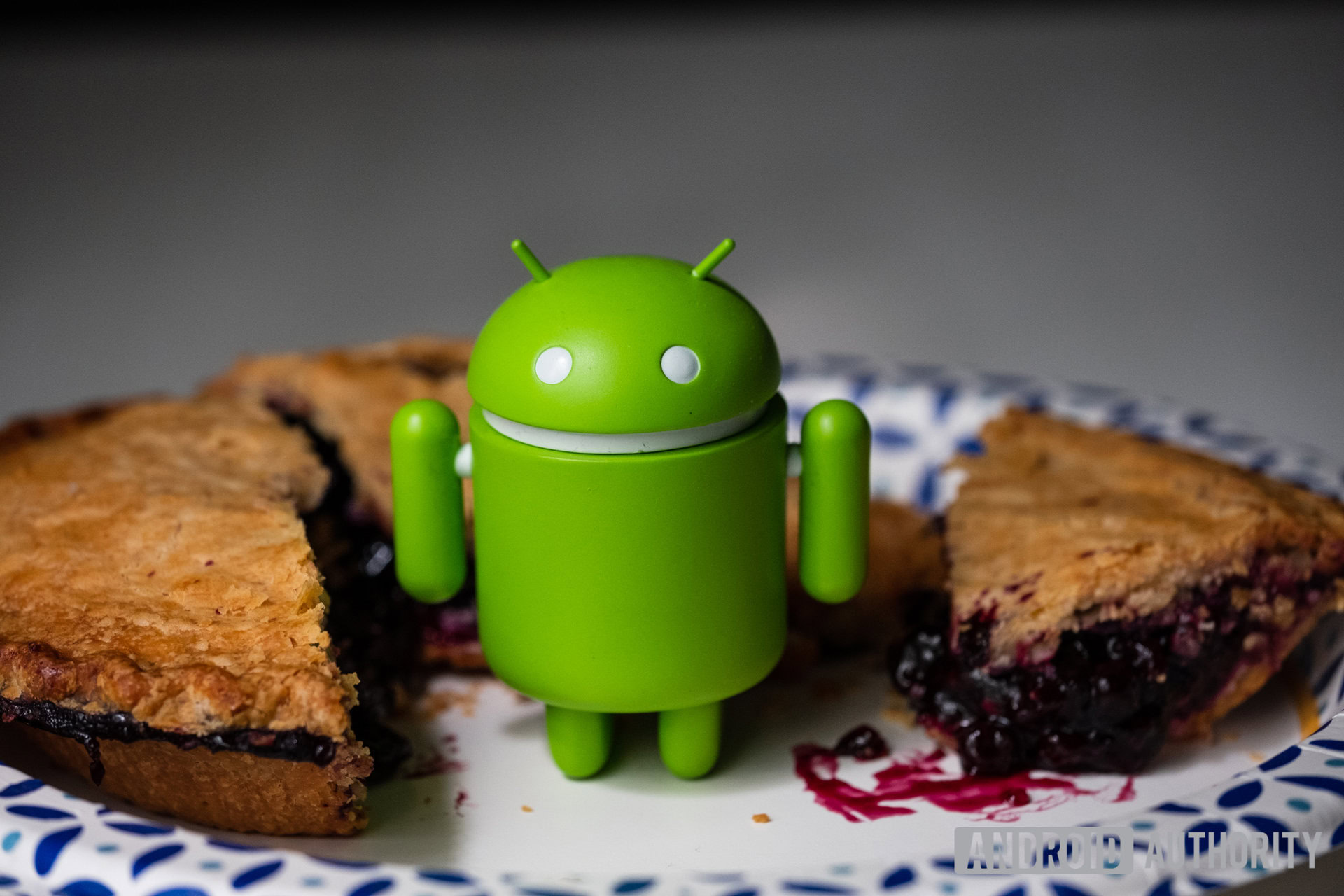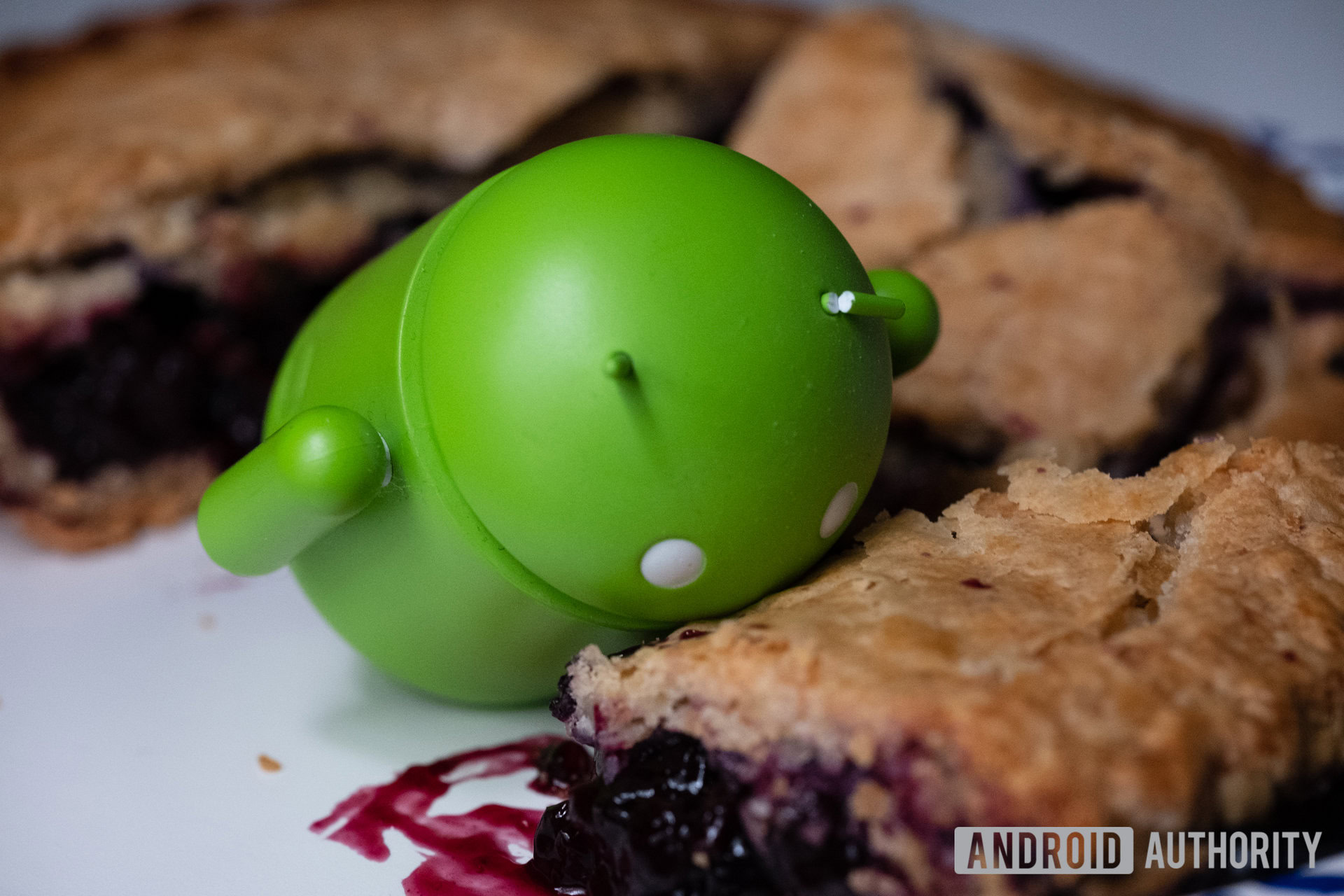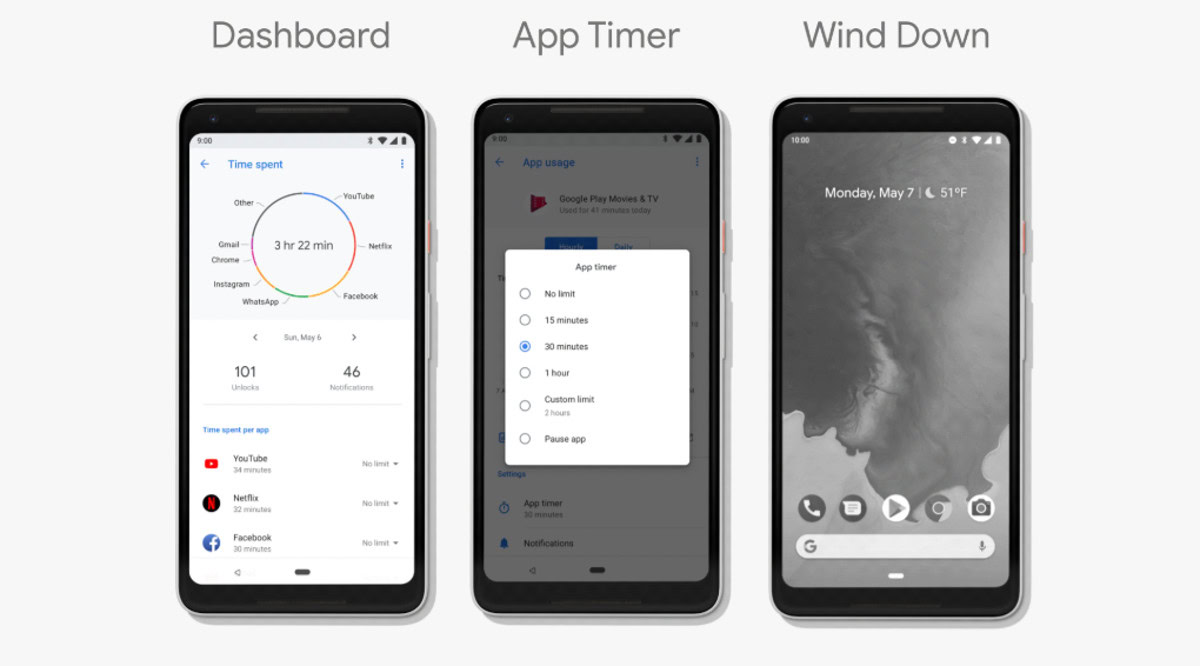Affiliate links on Android Authority may earn us a commission. Learn more.
Android 9.0 Pie is official, rolling out to Pixel phones today!

Google has officially announced the next major version of Android, 9.0 Pie.
Artificial intelligence seems to be the buzzword to use lately, and this new version of Android is all about it. Whether it’s being used to save battery or help you fall asleep at the right time, AI is very much at the center of Android 9.0 Pie.
We’ve put together a roundup of all the new features and changes included in the Android 9.0 update, which you can see below. But first, let’s talk about that name.
Don’t miss: Android 9.0 Pie review: Closing the gap
The name
When Google revealed the name for Android Oreo, it wasn’t all that surprising — not many dessert names start with O, and the ones that do start with O don’t exactly roll off the tongue. This year’s big Android release was a bit harder to pin down. There are a bunch of dessert names that start with the letter P, and many of you were split since the beginning. We asked you back in April what you thought Android P would be called, and most of our readers voted for Android Peppermint, followed by Android Pancake, then Android Pie.
Are you happy about the name? I actually like it a lot — it’s simple, and it’s not nearly as divisive as Nougat.
What’s new in Android 9.0 Pie?

If you’ve been following our Android P coverage over the past few months, you won’t find a ton of new things in this release. Pretty much all the new features we’ve been testing in the Android P beta builds have made it to this release. Those new features include:
- Adaptive Battery: uses on-device machine learning to understand your usage and prioritize battery power on the apps and services you use most often
- Adaptive Brightness: learns which brightness levels you prefer based on your surroundings, and automatically adjusts your phone’s brightness level for you
- App Actions: These little shortcuts, located in the app drawer, will predict what you’re about to do so you can get it done more quickly. For instance, if you normally open the app drawer, open the phone app, and call your best friend, you’ll eventually see an App Action suggesting you do so once you open your app drawer.
- App Slices: We haven’t been able to test out App Slices yet, but Google says it will make its way to Android Pie sometime in the fall. App Slices are similar to App Actions, but they appear in the Google Search bar. As an example, if you type “Hawaii” in Search, an App Slice might suggest you look at your recent Hawaii vacation photos in the Google Photos app.
- New gesture navigation: Android 9.0 Pie features a new way to navigate around your device. Gone are the traditional back, home, and recent apps keys. Instead, you get a single pill-shaped home button that you can tap to go home, swipe right to access recent apps, or swipe up to access your app drawer and app suggestions.
- Security and privacy features: Android Pie introduces plenty of new security and privacy features to help keep your data safe. One of the most helpful features introduced in the update is that applications are no longer able to access your mic, camera, or sensors when it goes idle. You can learn more about security in Android Pie right here.
- A ton of little changes: There are a bunch of other little features Google included in Android 9.0 Pie. Smart Text Selection, redesigned quick settings menu, improved notification bundling, manual switching between light/dark themes, improved autofill, revamped always-on display, and new volume shortcuts are among the many little changes in Android Pie.
Digital Wellbeing and the Android Dashboard

At Google I/O 2018, Google announced a new feature for Android Pie called Digital Wellbeing. This new feature is meant to help you use your phone less often, make you aware of how much time you’re spending in each app, and even help you wind down at the end of the day.
Located in the settings menu, the Android Dashboard will give you a detailed overview of how much time you’re spending in each app, how many times you’ve unlocked your phone, and how many notifications you’ve received. You can also set app timers that will limit how much you can use each app. If you’re spending too much time on YouTube, for instance, you can set a 15-minute time limit for that app. The app icon will be grayed out after 15 minutes to remind you of your goal.
Wind Down mode is also a new feature in the Digital Wellbeing suite. This will not only turn on your phone’s Night Light at the appropriate time, but it’ll also switch on Do Not Disturb mode and fade your screen to grayscale to help you remember to put your phone down at your chosen bedtime.
Digital Wellbeing is available in beta starting today, August 6.
Digital Wellbeing isn’t available in the initial Android 9.0 Pie release, but Pixel owners running Pie will be able to sign up for a beta program at the link below. You don’t need to be a part of the Android Beta program to sign up. Google says it may take up to 24 hours for Digital Wellbeing to show up in your phone’s settings app.
When will your phone get the update?
Android 9.0 Pie will begin rolling out to all Pixel smartphones over-the-air starting today, August 6. All phones that participated in the Android Beta program and Android One devices will receive the Android 9 update by the end of this fall.
For details on how to install Android 9.0 Pie, head to our walkthrough article right here.
We’ll have a full Android 9.0 Pie review for you later this week, so stay tuned!